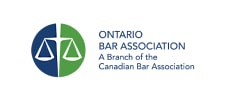The process of obtaining a visa in Canada can seem straightforward, but many individuals have their applications rejected for a variety of reasons.
Understanding the most common reasons behind visa rejections in Canada will help you ensure that your application is approved without any issues.
Inaccurate Information
Submitting inaccurate information is one of the most common reasons that visa applications are rejected. In most cases, it’s an unintentional mistake that creates more issues for applicants.
If you provide information that is incorrect due to an oversight or failure to understand what is being requested of you, your application may be rejected. Some individuals intentionally alter the information in order to conceal certain details they don’t want to provide. In addition to having your visa rejected, providing inaccurate information can result in a finding of misrepresentation, which will prevent you from reapplying for a period of five years.
Medical and Health Issues
Medical issues are another common reason that visa applications are rejected in Canada. A large number of individuals who apply for visas must undergo health screenings prior to entering the country.
Any significant medical conditions that are identified can lead to a rejection of your visa application. Diseases that can be transmitted and put others at risk are deemed as sufficient reason for visa rejection.
Any condition that puts the public the risk of any threats will result in the rejection of your application.
Canada recognizes the need to protect its citizens and minimize the burden placed on its healthcare system. Conditions that require a significant cost to treat could also lead to a visa rejection.
Previous Criminal Record
Individuals with a prior criminal record will often have their visa applications rejected by Canada. Almost any criminal conviction can be grounds for rejection and deportation. This includes driving under the influence of alcohol or any other drugs.
In some cases, an individual may be assessed to determine if they have been sufficiently rehabilitated in order to allow their visa to be approved. Temporary resident permits can be granted for short durations followed by an opportunity to establish their status as a permanently rehabilitated individual.
For certain types of visa application, the Canadian government will require criminal background checks from any country in which an applicant has lived for at least six months since the age of 18. These measures are taken to protect local residents and ensure that an individual does not pose any threat to the health or safety of Canadian citizens.
These are the most common reasons behind visa rejections in Canada. Understanding their implications in advance will ensure that your application is processed smoothly and efficiently. Providing the proper documentation related to the individual, health, and criminal history prevents any delays, rejections, or other issues during the application process. For more information, contact our team today.





















